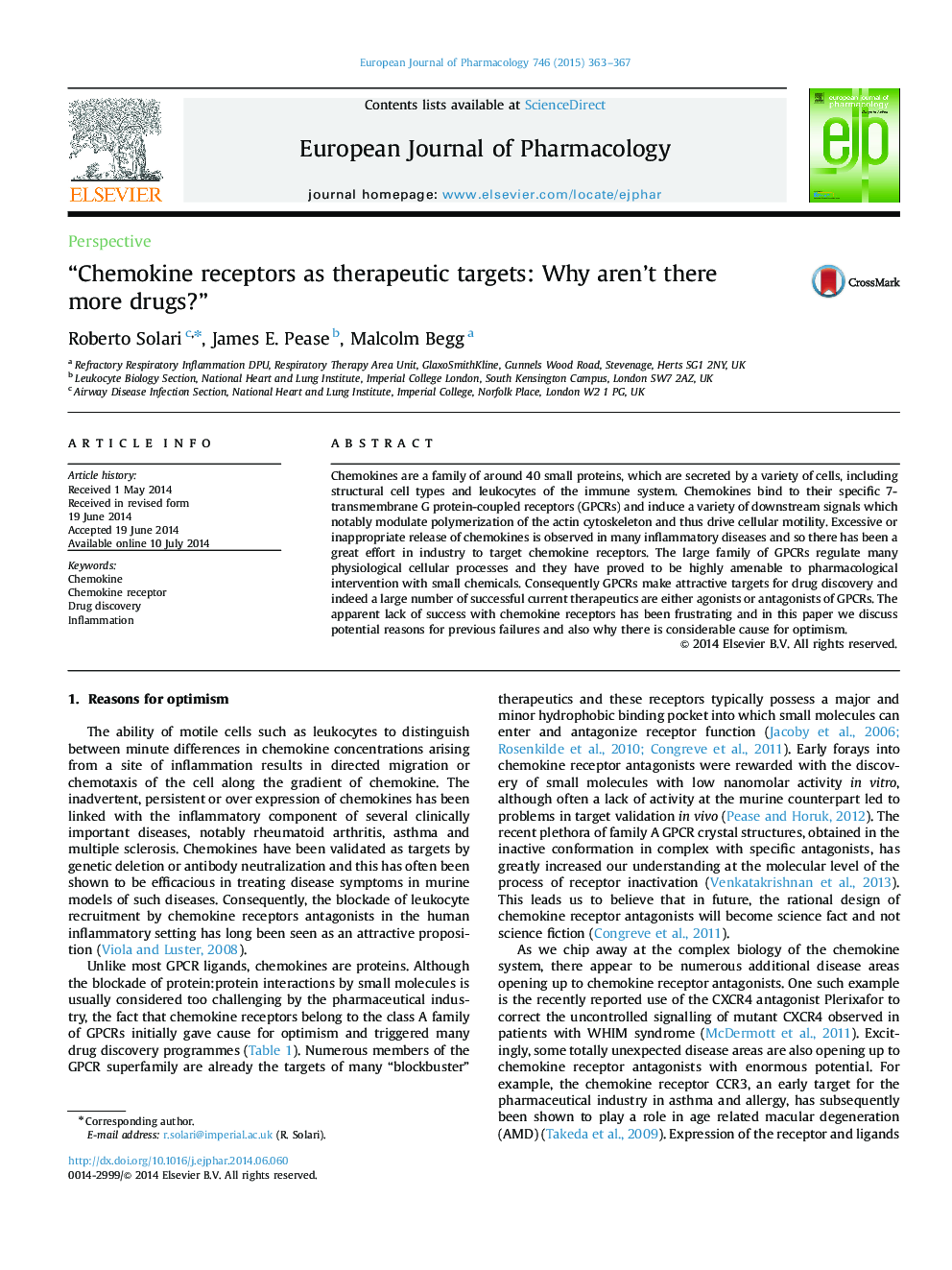| Article ID | Journal | Published Year | Pages | File Type |
|---|---|---|---|---|
| 2531588 | European Journal of Pharmacology | 2015 | 5 Pages |
Chemokines are a family of around 40 small proteins, which are secreted by a variety of cells, including structural cell types and leukocytes of the immune system. Chemokines bind to their specific 7-transmembrane G protein-coupled receptors (GPCRs) and induce a variety of downstream signals which notably modulate polymerization of the actin cytoskeleton and thus drive cellular motility. Excessive or inappropriate release of chemokines is observed in many inflammatory diseases and so there has been a great effort in industry to target chemokine receptors. The large family of GPCRs regulate many physiological cellular processes and they have proved to be highly amenable to pharmacological intervention with small chemicals. Consequently GPCRs make attractive targets for drug discovery and indeed a large number of successful current therapeutics are either agonists or antagonists of GPCRs. The apparent lack of success with chemokine receptors has been frustrating and in this paper we discuss potential reasons for previous failures and also why there is considerable cause for optimism.
